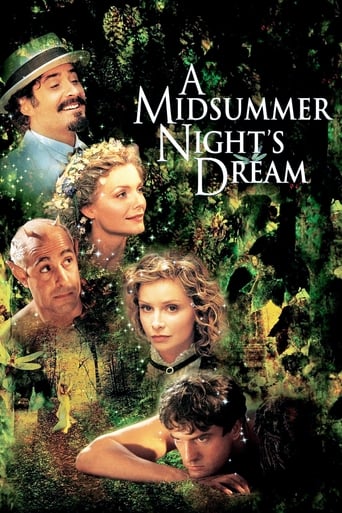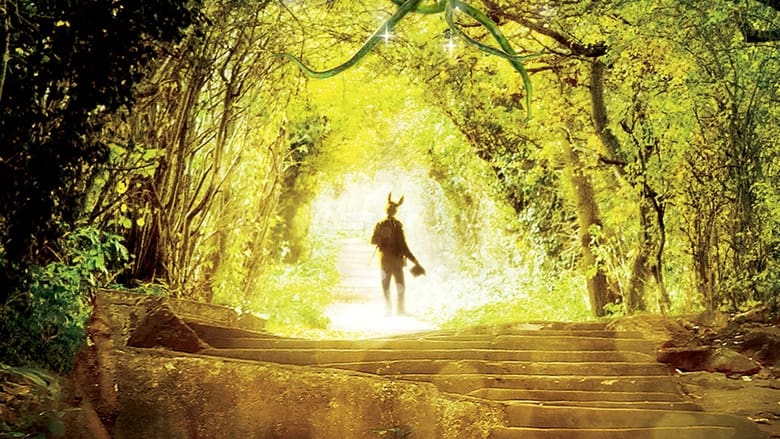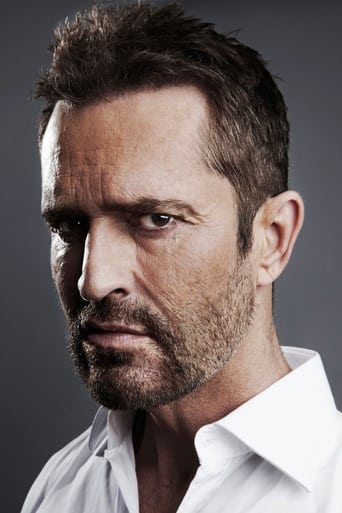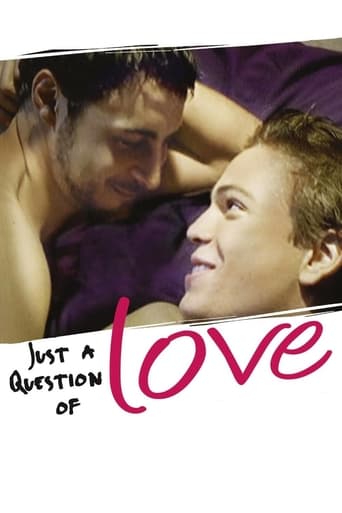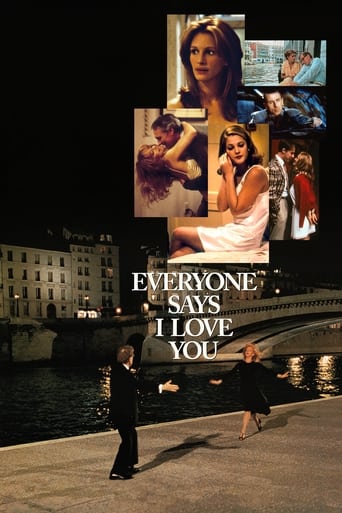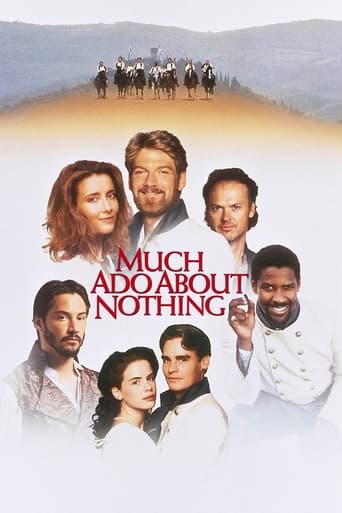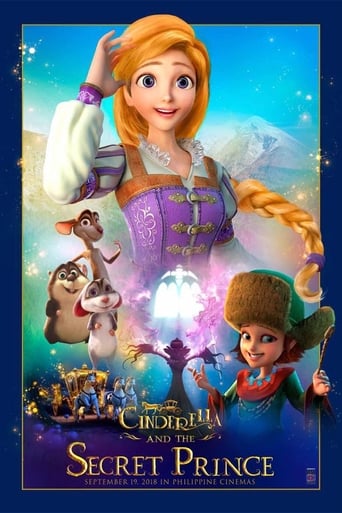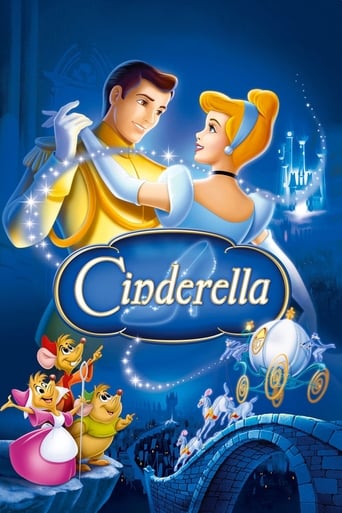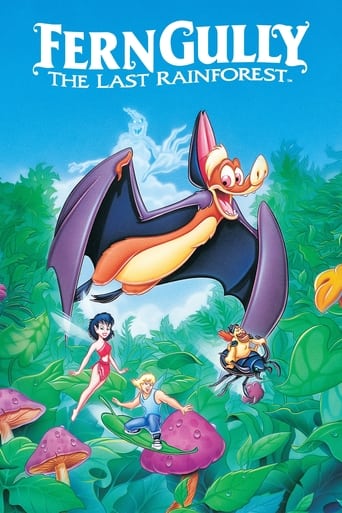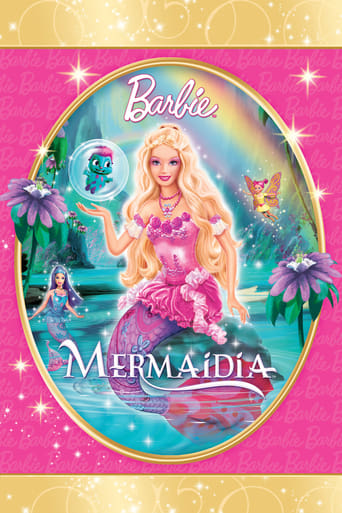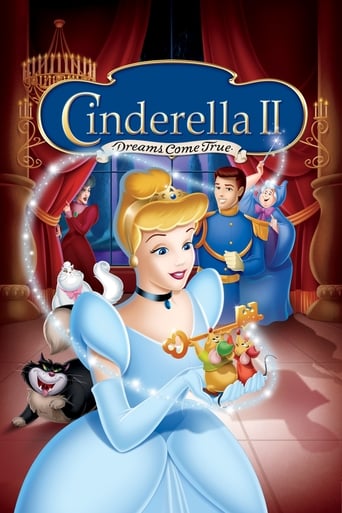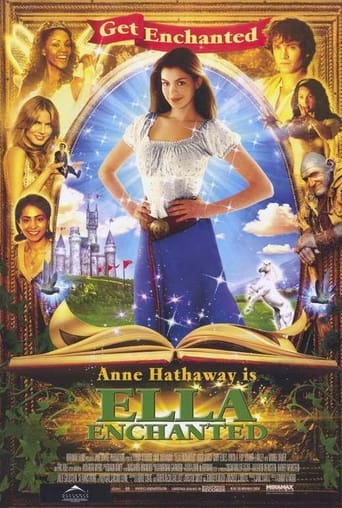A Midsummer Night's Dream (1999)
The lovely Hermia is to wed Demetrius, but she truly cares for Lysander. Hermia's friend, Helena, is in love with Demetrius, while other romantic entanglements abound in the woods, with married fairy rulers Titania and Oberon toying with various lovers and each other.
Watch Trailer
Cast


Similar titles
Reviews
This 1999 movie was Hollywood's take on one of Shakespeare's most popular plays. It boasts an impressive cast – Michelle Pfieffer, Rupert Everett, Anna Friel, Dominic West, Christian Bale, Calista Flockhart and Stanley Tucci among them.Until fairly recently, I did not enjoy reading Shakespeare's work – it seemed very 'dry' when written on a page (to me, at least). However, when his words are acted out on stage or screen, it all falls in to place, and it's much easier to appreciate the wit and intelligence of Shakespeare. In this case, I would suggest that some knowledge of the storyline of the play is helpful before watching (it does cover three interlinked stories), but it is certainly not necessary to have studied or read the play in any detail.Briefly, Egeus (played by Bernard Hill) wants his daughter Hermia (Anna Friel) to marry Demetrius (Christian Bale). However, Hermia is in love with Lysander (Dominic West). When she is given the choice of marrying Demetrius, being sentenced to death, or living as a Nun for the rest of of her life, Hermia and Lysander decide to run away together. Hermia's friend Helena (Calista Flockhart, in a fantastic turn) is in love with Demetrius, but he loves Hermia.Meanwhile, King of the Fairies Oberon (Rupert Everett) is estranged from his Fairy Queen Titania (Michelle Pfieffer); she has taken over the care of a changeling boy, after the death of the boy's mother, who was one of Titania's worshippers. Oberon wants the boy to work for him. He summons his mischievous but loyal fairy servant Puck to sprinkle a magic flower on Titania's eyes while she sleeps – the spell it casts causes the sleeping person to fall in love with the first living thing they see upon waking. Oberon believes that Titania will fall in love with a creature of the forest (where the fairies all live) and while she is distracted, he can take the boy.After seeing Demetrius and Helena arguing, Oberon also orders Puck to sprinkle the magic flower on Demetrius's eyes so that he will see and fall in love with Helena. Puck however has never seen Demetrius and when he stumbles across Lysander asleep in the forest (he and Hermia have stopped there for the night before continuing with their escape), he sprinkles the magic flower on Lysander instead. Helena then comes across Lysander and wakes him, and Lysander falls in love with her immediately. When Puck's mistake is discovered, he also sprinkles the magic flower on Demetrius's eyes, and Demetrius too sees and falls in love with Helena. The two young men argue over who should be with Helena, while Hermia accuses Helena of stealing Lysander's love.While all this is going on, a group of workers in the village are practicing a play to put on at the wedding of the Duke Theseus and his bride to be, Hippolyta. During their rehearsals in the forest, Puck sees Bottom (Kevin Kline) and casts a spell giving Bottom an ass's head, which naturally terrifies the fellow performers. They run away, and Bottom falls asleep. And then he is the first thing that Fairy Queen Titania sees when she awakes The plot sounds complicated, but it all plays out beautifully. The action is moved from Ancient Athens to Italy at the turn of the 19th century. The reason for this is not made clear (and the script retains its references to Athens), but it doesn't matter – Italy looks lovely – the film was shot on location, large in Tuscany. The fairy forest is enchanting, and even the cast are beautiful – in fact the whole film looks as though it has had its own sprinkling of fairy dust!The cast are all terrific. Stanley Tucci – always under-rated – excels as Puck, and really seems to be having fun with the character. Kevin Kline also makes the most of his part and gives a great performance. Puck and Bottom are probably the two funniest characters in the script, and I thought Tucci and Kline did great justice to the roles.The script is actually very very funny – I laughed out loud on a number of occasions – and very romantic and sweet too. The interlinked stories tie up together well and the ending is perfect – well, there must be a reason that Shakespeare is so revered centuries after his death.Overall, this is a very amusing, and beautiful looking film. Even if you're not a fan of Shakespeare, I'd recommend giving this film a watch.
There are basically two things that this movie proves, and that is that Shakespeare does make more sense when it is acted on stage (or on screen) and that the Royal Shakespeare Company production that I saw years ago is still the best, and funniest, performance of this play that I have seen (though including this movie I would have to make that count to be two). I hope that most people who are actually reading this already know what the plot of A Midsummer Night's Dream is all about as I don't really want to waste anytime going over it again, but I guess I will have to.As can be expected with most Shakespearian plays there is no one simple plot, and in fact this play is notorious for not actually having one single plot, but rather a collection of minor subplots that finishes up with a rather absurd performance of Pyrimus and Phisbie. Basically the king and queen of Athens (Theseus and Hippolyta) are getting married and stage a competition for the person that can make the best play. However, there are four younger people, Demetrius, Lysander, Helena, and Hermia, who are also major characters. Demetrius (I think) is engaged to Hermia, but Hermia and Lysander are in love, and Helena loves Demetrius. Then there is the faerie world where Titania and Oberon rule, and the Faerie king and queen are having a spat over possession of an Indian baby.Anyway, the four younger ones decided that they do not like the civilised world of Athens so they flee to the forest, and Oberon happens to spy Demetrius fleeing from Helena and finds that to be rather immature, and decides to work his magic, through his servant Puck, to make Demeritus fall in love with Helena, but Puck gets it mixed up and magics Lysander instead, and Lysander then falls in love with Helena, and thus we have a huge mix up where the four are running around everywhere and everybody is confused as to who loves who. Meanwhile, the four working class men sneak off into the woods to practice their play, and also end up under the spells of Oberon.One interesting thing that I picked up from this play, and I have mentioned it elsewhere, is the contrast between civilisation and nature. It is believed by the human characters that while under civilisation there is law, under nature there is freedom, however this turns out to be quite the opposite. Lysander and Helena flee civilisation to the forest to be free of the law of the civilisation, but end up under the law of the forest. As it turns out, by fleeing to the forest they are not escaping to freedom, but a new ruler and a new law. The theatrical version that I saw had the same actors playing Titania and Oberon as well as Hippolyta and Theseus (which adds to the weight that there is still law, and rulership, in the forest).Another interesting aspect is the nature of the dream. Once again I have mentioned this elsewhere, but the entire play in and of itself is a dream which we, the audience, are experience, and Puck outlines this at the end. However, the entire episode in the forest is also a dream for the characters, and we see that after they enter the forest they all fall asleep, and before they leave the forest, they are also asleep, so the entire episode in the forest, particularly the mix up, is bracketed by two episodes of sleep, and thus this whole escapade in a sense is a dream. Bottom says so much when he wakes up and discovers that he is no longer an ass.Further, we note that the dream world does have an impact upon the civilised world, as Demetrius falls asleep despising Helena and awakes loving Helena. What the movie managed to draw out more is the sexual nature of the play, which once again does not come out well in the written word, particularly with the language that is used. For instance, in another play I saw one of the actors, using demonic language, speaks of the man's horns and the woman's cloven hoofs, which, as it turns out, is a reference to their sexual organs.I did enjoy this film, but it was not as good as the play that I had seen. I was disappointed that they had shifted the setting to Italy, because the use of Greece in the play distanced the action of the play far back into the mythological past to add further to its dreamlike nature. Theseus and Hyppolita are both Greek myths, and exist the the time before the more historical period of Socrates, Leonidas, and Xerxes. Even the character of Lysander, named possibly after the Spartan Lawgiver, is also quite a mythological person. However, I did find the use of antique gadgets such as the bike and the gramophone to add something to the film, and added a newer dimension of how modern technology is beginning to intrude into the dream world, and in doing so, destroying the magical nature of the dream world. In the end, both Oberon and Titania leave the forest, possibly never to return, as reason begins to override faith.
Let me begin by saying that this is a beautifully acted, filmed and produced version of one of my two favorite Shakepespeare comedies. the other one being "Twelfth Night." That being said, however, I have to caution against anyone regarding this as a totally faithful adaptation. Having performed in and directed "A Midsummer Night's Dream," I think I am on fairly firm ground when I ask, "Where the Hell did Bottom's wife come from?" She is not in Shakespeare's script, and the inclusion of her only serves to make Bottom an even more pathetic character than he already is. Kevin Kline provides an tender, touching portrayal, but the character is not Shakespeare's.I have seen other criticisms and comments and I must take issue with those. I know it is easy to denigrate Shakepeare's language saying it is antiquated, too old, but to replace Shakespeare with a modern translation would be to lose the beauty of his words, and the wonder of his symbolism. I suggest these critics and reviewers get a little more education. I enjoy clever plays with scenery or time. Transplanting the time of the story to near turn of the century 1900, was effective. Changing the setting from Greece to Italy was convenient for filming and didn't detract from the story, but didn't necessarily add anything either.In conclusion, this is still an enjoyable film. But it is no more William Shakespeare's "A Midsummer Night's Dream" than Coppola's "Bram Stoker's Dracula" was Bram Stoker's.
The movie "A Midsummer Night's Dream" directed by Michael Hoffman was just about two hours long, the average length of a movie, but it was the longest two hours of my life. This misguided attempt at a classic uses many lines from the play, but the way the actors struggle getting the language down-pat changes the interesting, fun, and engaging script to a boring mess. In the book, Bottom (portrayed by Kevin Kline) thinks he is something extra special, as he does in some moments of the movie, but as they tried to add some depth to his character, we saw moments where he felt dejected, which didn't really flow with the character Shakespeare originally intended Bottom to be. It is also worth mentioning that although Titania did have a train of fairies in both the book and the movie, Shakespeare wrote them as male and Hoffman used female sprites. Oscar nominee Michelle Pfeiffer is a talented actress with a lot of experience, but perhaps not the best casting choice for Titania. Although she has the beauty and grace of the fairy queen, she seemed uncomfortable making lengthy speeches. On the other hand, I was surprised to see Calista Flockhart do a great portrayal of desperate Helena and use her frog-like facial features to entice the audience to watch the scenes. Unfortunately, Calista Flockhart provides some of the only star quality in the entire film. There are some strange contradictory moments; for example, when Robin says he will "Put a girdle round the earth in forty minutes", just like it is written in the play, he uses a turtle (a notable representative of slow movement) to get around. The plot of the movie is crucial to a story like this, and although it usually stays on point with Shakespeare's play, there are momentary lapses that don't fit in- like the use of the bicycles, which is just silly. The complex love quadrangle between Hermia, Lysander, Helena and Demetrius is recognizable, but not quite as tragic and confusing as you can picture when reading the book. This play is supposed to be a comedy, but the only laughter comes a brief moment at the end of the movie where a dog (which isn't in William Shakespeare's version) comes running onto the stage during the tradesmen's performance. Other than that, the humour is turned into boredom. Another reason why I found this movie boring was because it was not aesthetically pleasing. The set looks extremely unreal and there is not much more to elaborate about it. Likewise, I found the costuming to have little excitement, and I was especially disappointed with Bottom's ensemble. I had pictured an actual ass-head when reading the book, but all he had was donkey ears and some excess hair. The type of music was passable, but the sheer volume of it was unsatisfying. The only part of the setting that was identical to the book was which scenes took place at night and which scenes took place during the day. I would not recommend watching the 1999 film version of A Midsummer Night's Dream to anyone that gets confused easily, or any students having a test on the play. Instead of understanding the play more because of watching the play and getting to see the set and characters' body language, I am more perplexed than ever. There are obvious similarities, like many parts of the script and the relationships between the characters, but there is a dictionary full of differences- one huge one being that it takes place several centuries later in history. If you are in the mood to see a dramatic, romantic comedy, I suggest watching Enchanted, which brought in double the laughs, smiles, gasps and money in the U.S. Box Office.

